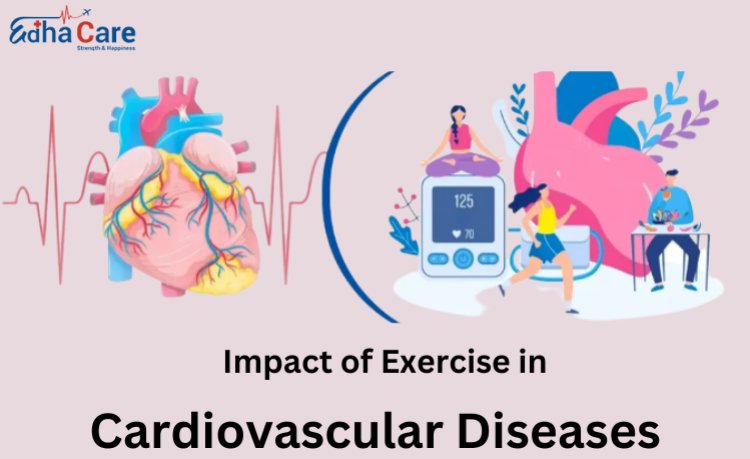Understanding Cardiovascular Disease: Causes, Risk Factors, and Prevention
Share this Post to earn Money ( Upto ₹100 per 1000 Views )

Cardiovascular disease (CVD) refers to a class of diseases that affect the heart and blood vessels. It is one of the leading causes of death globally and includes conditions such as coronary artery disease, heart failure, arrhythmias, valvular heart diseases, and peripheral artery disease.
The primary cause of CVD is the accumulation of atherosclerotic plaques within the blood vessels, leading to reduced blood flow and oxygen supply to the heart and other vital organs.
Risk factors for cardiovascular disease include:
Unhealthy Lifestyle: Sedentary lifestyle, poor diet, smoking, excessive alcohol consumption, and stress can contribute to the development of CVD.
Hypertension: High blood pressure puts strain on the heart and blood vessels, increasing the risk of CVD.
Hyperlipidemia: High levels of cholesterol and triglycerides in the blood can lead to plaque buildup in the arteries.
Diabetes: People with diabetes are at an increased risk of developing cardiovascular complications.
Obesity: Excess body weight can contribute to various risk factors for CVD, such as hypertension and diabetes.
Family History: A family history of CVD can increase an individual's risk.
Age and Gender: The risk of CVD generally increases with age, and men are at a higher risk than pre-menopausal women. However, post-menopausal women's risk approaches that of men.
Physical Inactivity: Lack of regular physical activity is associated with an increased risk of CVD.
Prevention and management of cardiovascular disease include:
Healthy Lifestyle: Adopting a healthy diet, engaging in regular physical activity, quitting smoking, and limiting alcohol intake can significantly reduce the risk of CVD.
Medications: Depending on the specific condition, medications may be prescribed to manage blood pressure, cholesterol levels, and other risk factors.
Monitoring and Regular Check-ups: Regular health check-ups and monitoring of risk factors are essential for early detection and management of CVD.
Medical Procedures and Surgery: In severe cases, medical procedures like angioplasty, stent placement, or coronary artery bypass grafting (CABG) may be necessary.
Cardiac Rehabilitation: For individuals with existing heart conditions, cardiac rehabilitation programs can help improve heart health and reduce the risk of future complications.
It is crucial to take preventive measures and seek medical advice if you have any risk factors or concerns related to cardiovascular health.
Early intervention and lifestyle changes can make a significant difference in preventing or managing cardiovascular disease. Always consult with a healthcare professional for personalized advice and treatment.








